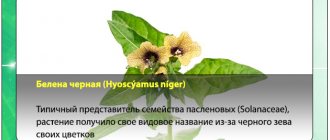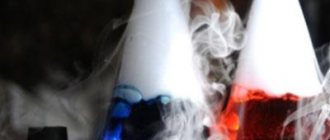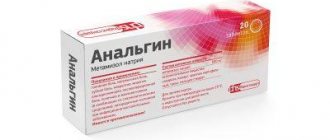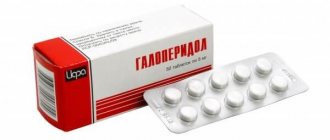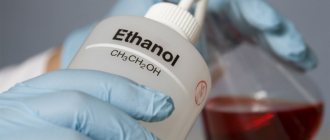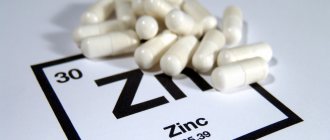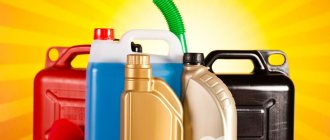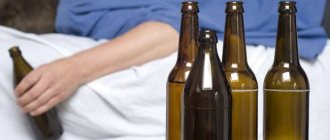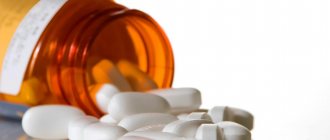Iodine is one of the key microelements that support the normal functioning of the human body. Its deficiency (iodine deficiency) causes the development of irreversible pathological processes. But what consequences can an overdose of iodine cause, and how to recognize it? You will find answers to all these and other important questions in this article.
Causes of poisoning
A person may experience sudden allergic reactions and congenital iodine intolerance. Also, this element can cause intoxication of the body, since it provokes the aggressive destruction of protein elements. According to the International Classification of Diseases, the ICD 10 code is T36-T50.
An overdose of iodine is called iodism. It can have an acute or chronic course. Iodine mesh practically does not cause symptoms of poisoning with its limited application.
All causes of problems are divided into 2 main categories - accidental and intentional. The first group includes the following factors:
- use of medication by a child;
- independent change in the dosage and timing of use of drugs containing this substance - you can be poisoned by Iodoform, Yatren, Lugol, blue iodine, potassium iodide, etc.;
- overdose of contrast agents containing iodine, which are used for diagnostic purposes - this category includes iodognost;
- violation of safety regulations at enterprises that use iodine;
- self-administration of iodine-containing medications;
- non-compliance with dosage in home recipes.
Intentional reasons include the following:
- children use the drug to cause an increase in temperature and skip school;
- women take alcohol tincture to terminate pregnancy;
- people with mental disorders use the drug for suicide or its simulation.
Tinctures with a concentration of 5 and 10% are dangerous. It is also quite possible to be poisoned by blue iodine and Lugol. Particular attention should be paid to storing medications. When it enters the body, severe symptoms and consequences appear.
The maximum permissible dosage of 5% tincture depends on the age category:
- adults can take 20 drops per application and no more than 60 drops per day;
- Children can drink no more than 3-5 drops 2-3 times a day.
Iodine vapor poisoning also poses a health hazard. The following standards exist:
- safe amount - less than 1 mg/m3;
- mild iodine intoxication - observed at 1.5–2 mg/m3;
- severe poisoning - occurs at 2-3 mg/m3;
- lethal outcome - may occur when 3 mg/m3 is exceeded.
The lethal dose of iodine for adult patients is 2 g of powder in the form of crystals.
Release form, composition and packaging
The product is available in tablet form. In 1 tablet the content of the active substance potassium iodide is 0.264 mg, and iodine itself is 0.2 mg.
The medicine also contains additional components such as lactose, magnesium hydroxycarbonate, microcrystalline cellulose, croscarmellose sodium, magnesium stearate, talc, colloidal silicon dioxide.
In a plastic cell package - 10 tablets. A cardboard pack may contain a different number of blisters - 1, 2, 3, 4, 5, 10 or 20 pcs. Packs with 1 plastic package containing 25 tablets (2 or 4 blisters each) are also available.
The product is available in tablet form.
Poisoning in children
Children can be poisoned by this substance if they accidentally use medications containing iodine. Symptoms of overdose in such a situation include staining of the mucous membrane of the mouth and tongue, the appearance of an unpleasant odor, and the characteristic shade of vomit.
If a child drinks a pure alcohol solution of iodine or swallows another drug containing this substance, there is a risk of suffocation. The same can be observed during intoxication with blue iodine. In such a situation, the poisoned baby should be immediately taken to the hospital.
Drug interactions
To understand how the drug interacts with additional drugs, you need to know that:
- antithyroid drugs impair the ability of iodine to act on the body;
- On the contrary, thyroid-stimulating hormones accelerate the process of iodine consumption by the body;
- the use of angiotensin-converting inhibitors contributes to the appearance of hyperkalemia;
- The amount of potassium accumulated by the body increases during the use of potassium-sparing diuretics.
Potassium iodide is taken simultaneously with Eufillin to treat abnormalities in the respiratory system.
First aid for poisoning
If symptoms of intoxication appear, it is very important to provide first aid to the victim. This will help prevent dangerous complications.
So, after poisoning, you should do the following:
- Lay the victim on his back and tilt his head slightly to one side. This will help prevent vomit from entering the respiratory system. If a child has been poisoned and has a convulsive syndrome, the baby should be restrained until the ambulance arrives.
- Rinse the stomach. It is worth giving the patient a couple of glasses of warm water and inducing vomiting. To do this, you need to press on the root of the tongue.
- Give the sorbent when clean water starts coming out. Activated carbon is suitable for this purpose. The victim is given 1 tablet per 10 kg of body weight.
- Mix flour or starch with warm water and give to the patient. It is important to consider that starch is a good antidote for iodine-containing medications.
- If the substance gets into your eyes or mouth, rinse them with water or wipe with a damp cloth.
It is strictly forbidden to induce vomiting in children under 3 years of age, especially with severe abdominal pain. To alleviate the child's condition, he can be given plenty of fluids and an antidote in the form of starch water.
pharmachologic effect
Iodine belongs to the category of essential elements, which cannot be avoided when restoring the usual functions of the thyroid gland. When iodides enter the tissue cells of the thyroid follicle, iodine ions, under the influence of the substance iodide peroxidase, enter the oxidation process with the synthesis of simple iodine, which is included in the tyrosine excimer.
At this time, 1 part of the tyrosine radicals in thyroglobulin is converted into iodine, as a result of which thyronines are formed. The main thyronines can be considered thyroxine and triiodothyronine. These substances bind to thyroglobulin, which is deposited in the albuminate of the thyroid follicle.
Iodine, supplied to the organs in sufficient quantities, prevents the formation of endemic goiter, the appearance of which is associated with a lack of this important element in food, restores the usual volume of the thyroid gland in newly born children and adolescents, affects the balance of T3 and T4 and restores the amount of pituitary hormones to normal level.
Iodine belongs to the category of essential elements, which cannot be avoided when restoring the usual functions of the thyroid gland.
Treatment for poisoning
In difficult cases, the patient needs hospitalization. In a hospital setting he is provided with the necessary assistance. In case of an overdose of this substance, the following treatment is usually prescribed:
- Consumption of enveloping foods. The patient can consume whole milk, jelly, banana puree.
- Organization of forced diuresis.
- Eliminate the effects of dehydration. For this purpose, intravenous administration of nutrient solutions is indicated.
- Injection of sodium thiosulfate into a vein.
- Rinse the mucous membranes of the eyes and use Dicain drops.
- The use of painkillers in the form of injections. This method is used for severe pain.
- Stimulation of the heart. For this purpose, special preparations are used.
- Elimination of bronchospasm. Inhalers are indicated for this.
- Oxygen inhalation. Performed in difficult cases.
- Carrying out hemodialysis. This measure is required in critical conditions.
Conditions for dispensing from pharmacies
You do not need a doctor's prescription to buy the medicine. However, to avoid complications, consultation with a specialist is recommended.
Price
The price of the drug depends on the region in which it was purchased.
The cost of a package containing 100 tablets of 0.2 mg is on average 130 rubles.
You do not need a doctor's prescription to buy the medicine.
Consequences of poisoning
If there is an excess accumulation of iodine in the body, dangerous consequences are possible. These include the following:
- esophageal strictures;
- bleeding in the stomach or intestines;
- ulcerative lesions of the digestive system;
- pulmonary edema;
- coma;
- acute heart failure;
- pneumonia;
- hepatorenal syndrome;
- dysfunction of the nervous system - manifests itself in the form of hallucinations, deterioration of vision and hearing, depression of consciousness;
- allergic reactions - there is a risk of angioedema.
An overdose of iodine during pregnancy can lead to thyrotoxic crisis. If a woman is poisoned by this substance, there is a risk of miscarriage or impaired fetal development.
Have you ever had iodine poisoning?
Contraindications to the use of Potassium iodide 200
It is prohibited to start taking the medicine in the following cases:
- when hypersensitivity to individual components of the drug occurs, even when used topically;
- after resection of the thyroid gland;
- when detecting hyperthyroidism, diffuse and nodular toxic goiter, while using the drug as prescribed by a doctor, except when the drug is used as an antihyperthyroid agent, because consuming iodine over a long period of time leads to gland hyperplasia, the appearance of adenoma, goiter or hypothyroidism;
- during the treatment of toxic adenoma and other benign inflammations of the thyroid gland;
- in the initial stages of pregnancy, except in cases of danger of infection of the body with radioactive substances, in which the doctor may prescribe a dose using Potassium perchlorate;
- during breastfeeding.
Prevention of poisoning
To prevent iodine intoxication, it is important to follow these rules:
- When using medications containing iodine, strictly follow medical recommendations;
- when contacting the substance in a production environment, use protective equipment;
- When working with iodine, adhere to safety precautions;
- store iodine-containing products out of reach of children.
Iodine poisoning is a very complex condition that can cause negative consequences. If dangerous manifestations appear, you should immediately use an antidote and strictly follow medical recommendations. Recovery from such intoxication occurs very slowly, so do not neglect the rules of prevention.
special instructions
Before starting therapy, it is necessary to eliminate factors that negatively affect the condition of the thyroid gland, such as hyperthyroidism and nodular toxic goiter.
During treatment with this drug, patients with kidney problems may develop hyperkalemia, so you need to periodically monitor the level of potassium in the body.
When using the medicine, you are allowed to drive a car or other machinery.
Use during pregnancy and breastfeeding
Pregnant and lactating women experience iodine deficiency, so there is a need to increase the concentration of this substance in the blood. The medicine is started to be used if the daily requirement of iodine does not enter the mother’s body during meals. But before using the medicine, it is worth considering the fact that its active substances can penetrate the placenta and then cause the appearance of hyperthyroidism or goiter in the child.
Also, the active substance of the drug easily penetrates into breast milk. For this reason, during breastfeeding you should limit the use of small doses of the drug.
Pregnant women experience iodine deficiency, so there is a need to increase the concentration of this substance in the blood.
Use in children
For newborns and adolescents, the drug should be used in the following quantities:
- when treating goiter - up to 220 mcg;
- for preventive purposes - up to 130 mcg;
- in the postoperative period - up to 250 mcg.
The drug should be given to children only after consultation with a specialist.
Use for renal impairment
Excessive use of drugs containing iodine in elderly patients can cause the development of hyperkalemia. Therefore, during treatment of kidney diseases, the functioning of the urinary system should be monitored.
Excessive use of drugs containing iodine in elderly patients can cause the development of hyperkalemia.
Physical properties of halogen:
- the element consists of only one isotope (iodine-127);
- usually it is a crystalline substance of solid consistency, dark color, with a metallic sheen and a peculiar odor;
- iodine vapor is bright purple in color and is formed even with a slight increase in temperature;
- when cooled, the halogen vapor immediately crystallizes, bypassing the liquid form;
- If you heat iodine with an additional source of pressure, you can obtain a liquid state of the trace element.
Chronic intoxication
Poisoning with the element iodine is called iodism . Sometimes the body can be oversaturated with halogen, but not suddenly - an overdose, but gradually. People who work in industries where large amounts of halogen are used or processed often suffer from chronic toxicity. In this case, it is quite easy to get poisoned. You can also develop a chronic disease if you have undergone a long course of treatment with drugs that contain iodine. Chronic infection is especially dangerous because it greatly reduces immunity and contributes to the development of other diseases.
Iododerma is a disease that is dermatological in nature. This is the development of acne, dermatitis or urticaria. The eyeballs can be damaged and, as a result, various inflammatory processes can develop. These are blepharitis, conjunctivitis and others.
Iodine overdose: symptoms
Lastly about this. Many people are interested in what happens if you drink iodine with water? Not for dubious purposes, but for good ones - to dilute a little substance and take it for the sake of prevention and saturation of the body with this element.
Well, if you drop one drop per half liter of water, there will be no harm. This use of iodine internally will be beneficial. Still, this substance is necessary for the production of endocrine gland hormones. But you can’t overuse it – once a week will be enough. If you get carried away, you can get a burn from iodine and other unpleasant consequences.
What about the norms? The maximum permissible amount of this substance for intake per day is 150 mcg for adults (0.00015 grams). This must be remembered if you do not want to accidentally get burned by iodine.
Loading …
There are a huge number of symptoms that will indicate an excess of iodine. The symptoms will depend on exactly how it entered the human body. It is also very important to take into account the individual characteristics of each person. After all, it is possible that allergic reactions to this microelement may occur. There are three forms of iodine poisoning, with varying symptoms. But there are also general signs of an overdose:
- temperature rises;
- loss of appetite;
- not enough air;
- fingers tremble slightly.
An overdose of the drug is similar in symptoms to poisoning. Nausea, vomiting, severe abdominal pain, flatulence, and diarrhea appear. Dehydration sets in. A headache and fever may appear. In case of severe overdose, a drop in blood pressure and a state of shock may occur.
Specific symptoms of iodine poisoning include a change in the color of the mucous membranes (turning brown) and the appearance of a metallic taste in the mouth. If the patient has eaten food that contains starch, the vomit turns blue.
In severe cases, the mucous membranes of the respiratory tract are affected. Nasal congestion, stiffness in the throat, difficulty breathing, and a cough develop. Rarely - obstruction of the esophagus.
If the patient takes Iodomarin for a long time or simultaneously consumes a lot of seafood, the active substance may accumulate in the body. Iodism develops.
Acne on the face
Overdose can be determined by symptoms:
- skin rashes (iodine acne), itching, redness of the skin, swelling;
- inflammation of the mucous membranes, discoloration (yellow-brown);
- metallic taste in the mouth, feeling of thirst;
- burning in the throat, hoarseness;
- increased lacrimation and salivation;
- the appearance of nausea, flatulence, diarrhea;
- exacerbation of chronic diseases: gastritis, pancreatitis, tuberculosis;
- decreased immunity, the occurrence of infectious diseases;
- nervous excitement, fever.
general characteristics
Chemists describe iodine as black/gray crystals with a characteristic purple glow and a pungent odor.
When heated, violet-colored vapors are released, which is how the element got its name. INTERESTING ! The discovery of the chemical substance dates back to the 18th century, although the well-known medical iodine solution began to be used much later.
In the periodic table of Mendeleev, the element is designated as I (from Iodum), has atomic number 53, belongs to the active non-metals and the halogen group.
The chemical properties of the element are similar to Chlorine, only it is extracted from seaweed/petroleum sources, resulting in characteristic crystals with a metallic sheen/pungent odor.
The substance also turned out to be volatile even at room temperature. With minimal heating, it may ignite and begin to evaporate. The vapors have a bright purple hue.
Analogs
Among the most popular analogues are the following drugs:
- Iodomarin 200, the price of which ranges from 150 to 210 rubles.
- Iodine balance costs up to 130 rubles.
- Renewal - 140-160 rubles.
- Yodostin - 240-270 rubles.
- Iodine vitrum. Average price from 280 to 330 rubles.
- Microiodide - 40-60 rubles.
The above medicines contain identical substances. The main element is potassium iodide. This means that the effect of using these drugs will be the same. They differ from each other only in the manufacturing method, manufacturer and additional components included in the preparations.
